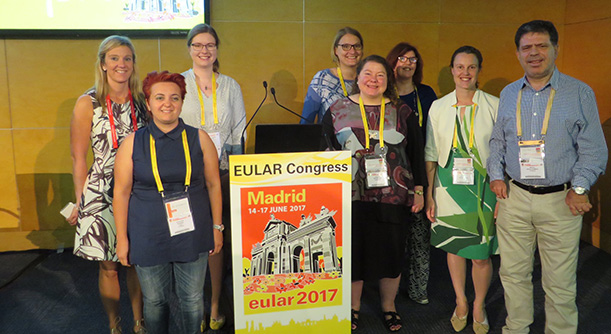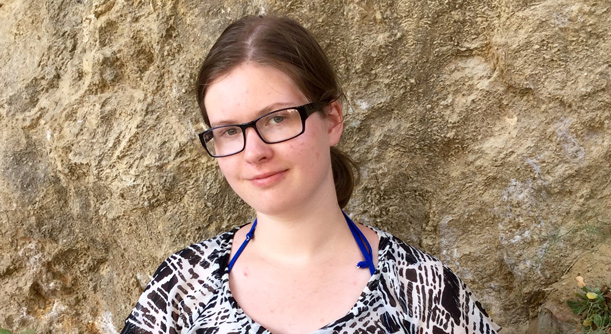Representing the EPF Youth Group, Lembe Kullamaa attended the yearly EULAR (European League Against Rheumatism) congress in Madrid on 14-17 June 2017. Speaking on employment issues for young patients, Lembe underlined the many challenges young people with chronic conditions face when entering the job market.
Access to the job market is a core issue for young patients and is high on the agenda of the EPF Youth Group. Its work on unemployment aims to raise awareness of the extra burdens faced by young people with chronic conditions, as well as bringing public attention to the stigma and discrimination that exist at both the recruitment stage and when employees come to disclose their health conditions. The invitation to present on this important topic at this year’s EULAR congress was therefore a great opportunity to give some visibility to the work of the Youth Group on this issue, and to find potential solutions, or at least some new ideas.
Young Patients Want to Be Active!
Young patients and young people in general are the future of the labour market and ultimately of our society. Today, we see youth unemployment rates rising in several EU Member States and many young people struggle to find a decent job[1]. This situation is exacerbated when you have a chronic condition. Given the progress in diagnosis, the number of young people with a chronic condition is likely to increase, which will inevitably turn into an increase of young patients facing barriers at entering the job market.
In 2016, the EPF Youth Group co-organised with the European Multiple Sclerosis Platform (EMSP) a workshop on employment for young patients and published recommendations to alleviate the burden and stigma around young jobseekers with chronic conditions, including:
- Providing training and resources to managers and employees to raise awareness of the impact that chronic conditions can have on an individual, and how they can be assisted through small adjustments or specific care requirements;
- Where quota systems apply, they should be re-evaluated and designed so as to recruit young patients on merit, in competition with other workers without a chronic condition and/or disability.
Transition to Adult Care – Need for More Coordination
The EULAR congress tackled another topic in line with the Youth Group’s priorities and field of actions, namely the central period of transition to adult care. Berit Flato from the Oslo University Hospital informed the audience that half of young people with juvenile idiopathic arthritis do not successfully transfer to adult care, despite best practices in place. She called for more practical guidelines and actions to help patients in this crucial phase of their treatment journey.
In their 2016 roundtable on transition to adult care, the EPF Youth Group came up with very concrete recommendations, calling for:
- A holistic approach from the healthcare staff and training to communicate with young patients facing the transition process;
- The standardisation of the responsibilities of Transition Coordinators, profiles that are not often in place in national healthcare systems. The role of coordinators would be to centralise information about young patients in transition to adult care and to facilitate the process, for it to be as smooth as possible.
The 2017 EULAR congress was a great opportunity for the EPF Youth Group to exchange on its policy positions, to learn from other stakeholders on important topics, and to share its recommendations.
[1] http://ec.europa.eu/eurostat/statistics-explained/index.php/Unemployment_statistics#Youth_unemployment_trends


